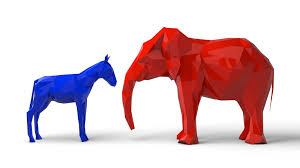
Growing concern over the coronavirus (COVID-19) has seeped into the regulatory and legal world. Agencies and plaintiffs’ attorneys are targeting companies that claim their products can treat or prevent COVID-19. As people search for health products to counter the growing threat of coronavirus, companies should keep in mind that any advertising claims made must be substantiated. Health claims trying to trade on the panic caused by the virus will be closely monitored and pursued by law enforcement and the plaintiffs’ bar.
A few days ago, the Federal Trade Commission (FTC) and U.S. Food and Drug Administration (FDA) issued seven joint warning letters to companies making allegedly unapproved and unsupported advertising claims related to their products’ ability to treat or prevent the coronavirus. The letters state that any advertising claims trumpeting a product’s ability to treat COVID-19 “are not supported by competent and reliable scientific evidence” — which is required under the FTC Act.
On the FDA side, these products are considered to be in violation of the Federal Food, Drug, and Cosmetic Act as they are “unapproved new drugs” and “misbranded drugs.” According to the FDA, there currently are no vaccines, pills, potions, lotions, lozenges, or other prescription or over-the-counter products available to treat or cure coronavirus disease 2019. Thus, the sale and promotion of these products are regarded as “a threat to the public health.”
According to the warning letters, both agencies are prepared to take action against these companies. With anxiety levels already at an all-time high over the potential spread of the coronavirus, the FTC and FDA promise to monitor social media, online markets, and incoming complaints to safeguard against any future fraudulent product marketing from the companies.
The Missouri AG has also brought suit against TV preacher Jim Bakker for claims that Bakker’s Silver Gel can treat coronavirus. And the New York attorney general sent cease and desist letters to companies that claimed their product can prevent or beat coronavirus.
The agencies aren’t the only ones on the lookout for advertising claims related to coronavirus. A putative class action lawsuit filed in California alleges that Germ-X falsely claims in advertisements, social media, and on its website and other retail websites that its hand sanitizer can reduce the chance of infection and illness from colds, flus, and viruses, even making an explicit claim that its products provide “Coronavirus/Flu Prevention.” However, the plaintiff alleges, no evidence supports claims that Germ-X’s products prevent disease or reduce illness, and these advertisements take advantage of consumers’ fear by deceiving them into purchasing the company’s products.
The warning letters and lawsuits reinforce the age-old adage: Don’t make advertising claims if you don’t have the necessary evidence to back them up. This maxim was true before coronavirus swept the world and remains true now, when consumers’ sensitivity to these claims is heightened. Making claims that are properly substantiated will ensure that your advertising stays clean in a time of heightened enforcement.

